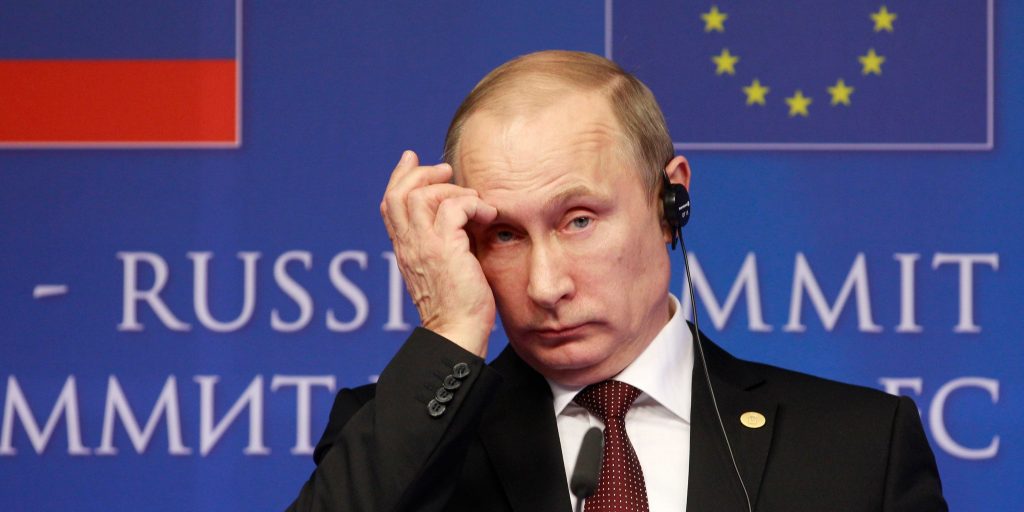- Russian crude production has remained high, but that could soon change, analysts from Rystad Energy said.
- Lower demand from Asia and the impending EU ban could result in production falling by 1.1 million barrels a day.
- Combined with a price cap, the effects could be devastating for Russia's economy.
Russian crude production has stayed strong this summer, but that could soon change as lower demand in the second half of the year will soon hammer Russia's largest exported commodity, analysts from Rystad Energy said, spelling trouble for the Russian economy.
"Russia has so far demonstrated high resilience to the unprecedented pressure imposed by Europe and the US – but the worst is yet to come," the research firm said on Tuesday, warning of an incoming production drop despite the strong summer months.
But that will change come autumn. "Domestic consumption has helped fill the gap during the peak demand season, but overseas demand for Russian blends has dipped, spelling trouble further ahead," Daria Melnik warned, pointing to lowered appetite for Russian crude among Asian buyers.
Exports to China and India, Russia's largest crude oil customers, recently fell to the lowest levels since March, and India has begun turning to Saudi oil for better prices.
That drop off is already starting to show in the data. Rystad estimates that Russian crude exports fell by 400,000 barrels per day in July, and exports to China and India were below 2 million barrels a day in the week ending August 12.
EU sanctions on Russian fuel, which are expected to fully kick-in by year-end, will also be a hurdle to Russia's crude exports. EU purchases of Russian crude will slip to just 600,000 barrels a day by year-end, Rystad said, down 2.5 million bpd from what it was importing before the war.
Together, those factors could lead to a fallout of 1.1 million barrels a day for Russian crude production when the summer ends, which would be potentially devastating to Russia's economy. Central bankers expect the national economy to shrink by 7.5%-8% in the third quarter and 10%-11% in the fourth quarter this year.
"Russia will have to cope with a national economic crisis as well as source new markets for its oil and oil products when the EU embargo comes into force … further recovery will be more challenging and will take more time," analysts said.
That could be even worsened by a planned price cap on Russian oil, which will be officially proposed by year-end. Industry experts think it's likely Russia would retaliate against such a measure and take even more of its fuel off the market, further driving up the price of oil.
